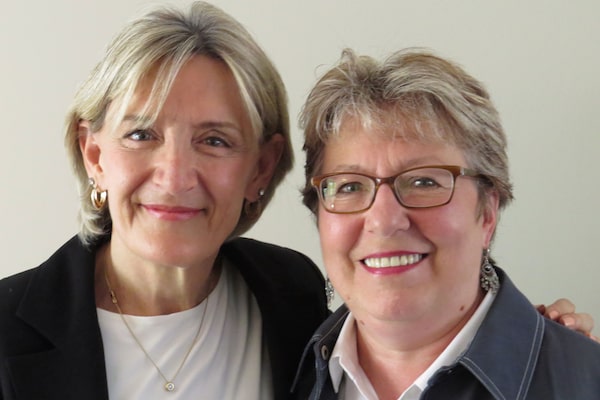
Forging meaningful connections and framing discussions around personal goals rather than financial ones are the keys to serving female clients properly, consultants suggest.Yuri Arcurs/iStockPhoto / Getty Images
Women are slated to control about half of accumulated wealth in Canada within the next decade, according to various recent studies. Yet, the financial advisor community remains male-dominated and the disconnect between male advisors and their female clients is often stark. Paulette Filion and Judy Paradi, partners at Toronto-based StrategyMarketing.ca, are out to to change this dynamic.
The duo, who consult financial services firms and educate advisors on how to better connect with women investors, recently released their book INVESTinHER: The Smart Financial Advisor’s Guide to Winning Female Clients in Six Easy Steps. The book’s central theme is that to attract and retain female clients, advisors need to forge meaningful connections with women and frame discussions around personal goals rather than financial ones.
Ms. Filion and Ms. Paradi spoke with The Globe and Mail recently to discuss why the book’s message must be top of mind for advisors, the importance of building trust with female clients and the role of women in the financial services industry itself.
Why did you feel it was necessary to write this book now?
Paulette Filion (PF): Historically, women haven’t connected with the financial services industry – and vice-versa. Everybody in this business thinks it’s the men who have the money, who control the money and who are interested in investing. And so, women are just afterthoughts.
When we first began examining the role of women in investing more closely, it came to the forefront that women already owned quite a bit of assets – and they’re going to inherit significantly more money when their husbands die. So, people started paying more attention to women investors. Five years later, I think everybody accepts the fact that women will control most of the money. And now, they’re asking, “What do we have to do?” to ensure we continue to manage those assets.
At first, advisors thought they could tweak a couple of things about their practices to appeal to women. “I’ll do a brochure, I’ll have a little website that talks to women and that will be good.” Our message right from the start was: If you go out and run ads that say “We’re female friendly,” you add a drop-down menu on your website for women and then I walk into your office and I’m treated exactly the same way my mother was, then your advertising and all your expenditures are going to waste. So, we decided we need to help advisors change how they interact with women.
The book appears to be directed at male advisors, but do female advisors struggle with working with women investors?
Judy Paradi (JP): Women who got into this industry often learned from men. So, when you’re in a boardroom with all these guys, and they say, “This is the way we do it, you have to do this as well,” there’s a cohort of women who think, “This is the way I have to do it.” And when she says, “I’d like to do it differently,” she gets shot down.
PF: We say that if you do it right for women, you do it right for everybody. Because despite the fact that our focus has been on women, we’ve also found that once you start framing the discussion around life goals as opposed to what’s in a portfolio, we often find men who say, “Well, I’d like to hear that stuff too. I’d like to hear about my life goals. I’d like to see where I’m at. And will I have an income in retirement?”

Judy Paradi and Paulette Filion, partners at StrategyMarketing.ca in Toronto.Handout
What tangible approaches can advisors use to connect with women investors?
JP: Women aren’t competitive. They’re not looking at, “What’s my rate of return? What does my portfolio look like?” Instead, they’re focused on, “Will I be able to retire when I’m 62, be able to travel and take that writing course I always wanted to?” or “Will I be able to help my grandkids?” They look at things very, very differently.
And when we talk to women and ask them, “What do you like about your financial advisor?” They will cite something personal.
PF: We often say to advisors, “Bring somebody into the room to monitor the discussion.” I remember talking to one advisor who always said, “I’m very good with women, I really engage the wife.” But I said, “Bring your administrative assistant into the conversations.” And so, he held a meeting with a couple and his administrative assistant was there. After the meeting, he asked her how he did. And she said, “You hardly ever looked at her.” To which he responded, “You’re kidding! I thought I looked at her a lot!” He thought he was good, but he wasn’t. So, you don’t know what you don’t know. And you can’t judge yourself. You can’t say, “I did a good job.” Sometimes, these biases are so ingrained.
I always say, start by adding a woman to your team. You’ll find that will have the biggest impact on you and your practice. Because, all of a sudden, if you have an equal who’s a woman, she’ll put her two cents in and say something like, “Well, we didn’t do that right,” or “I think we should have the wife in and we shouldn’t hold a meeting without her being at the table.”
This interview has been edited and condensed